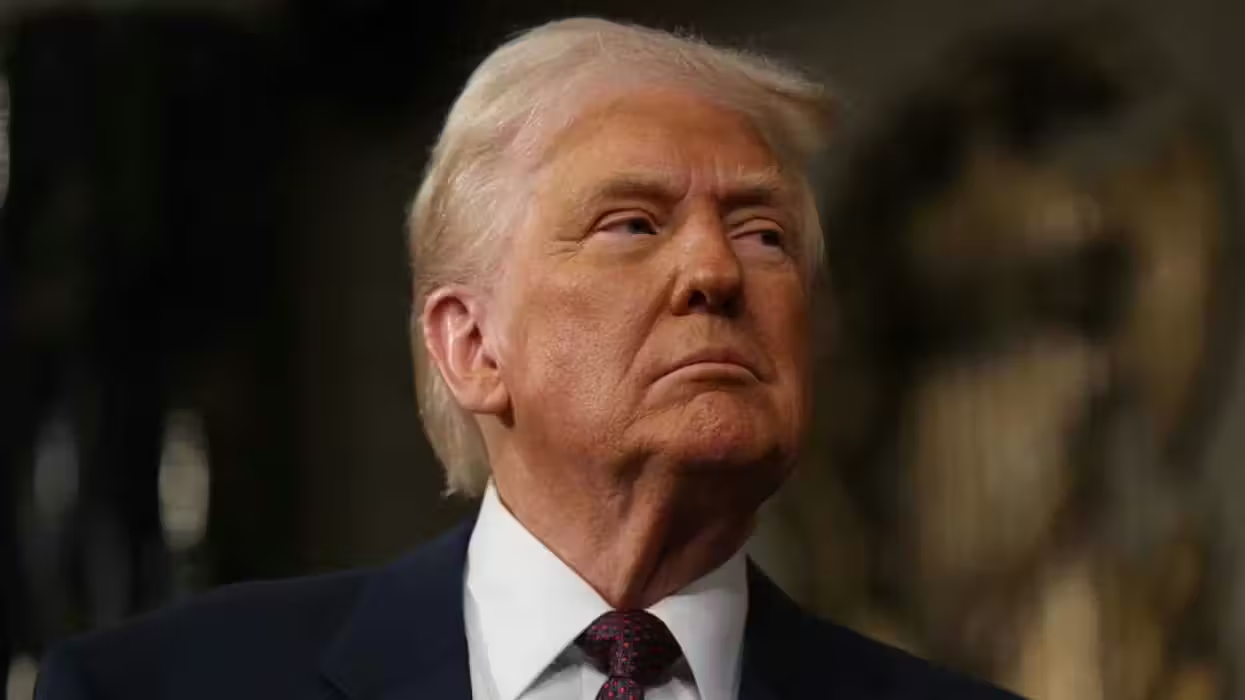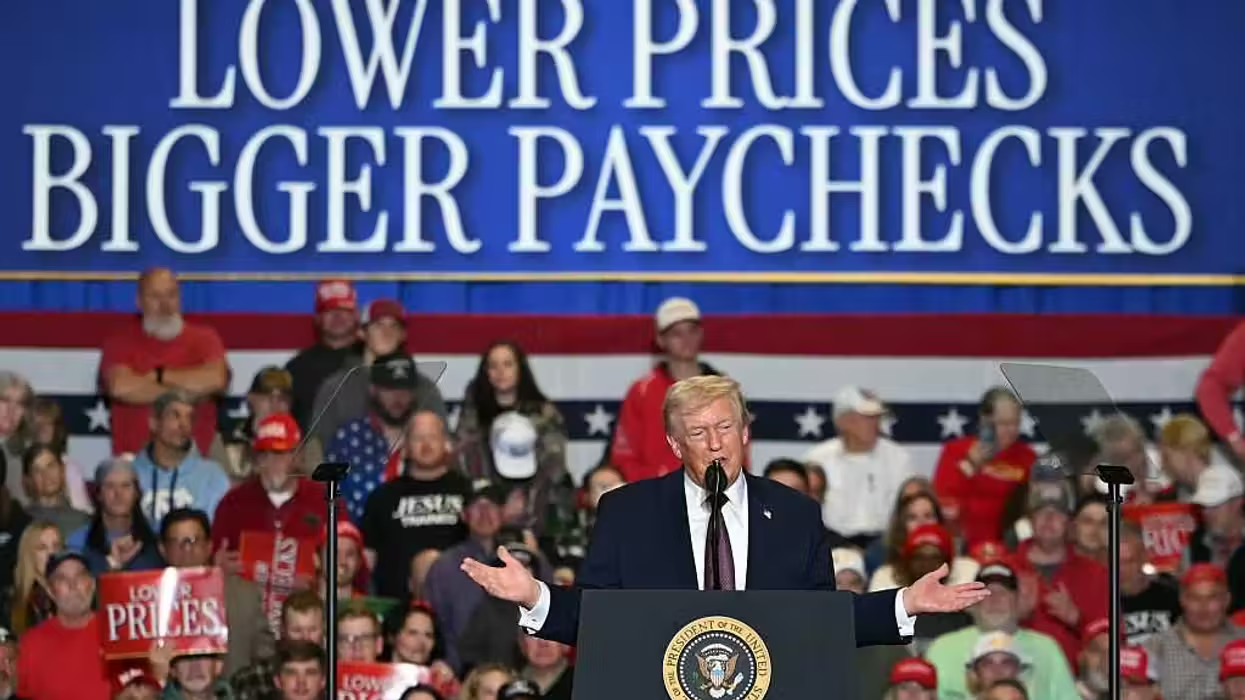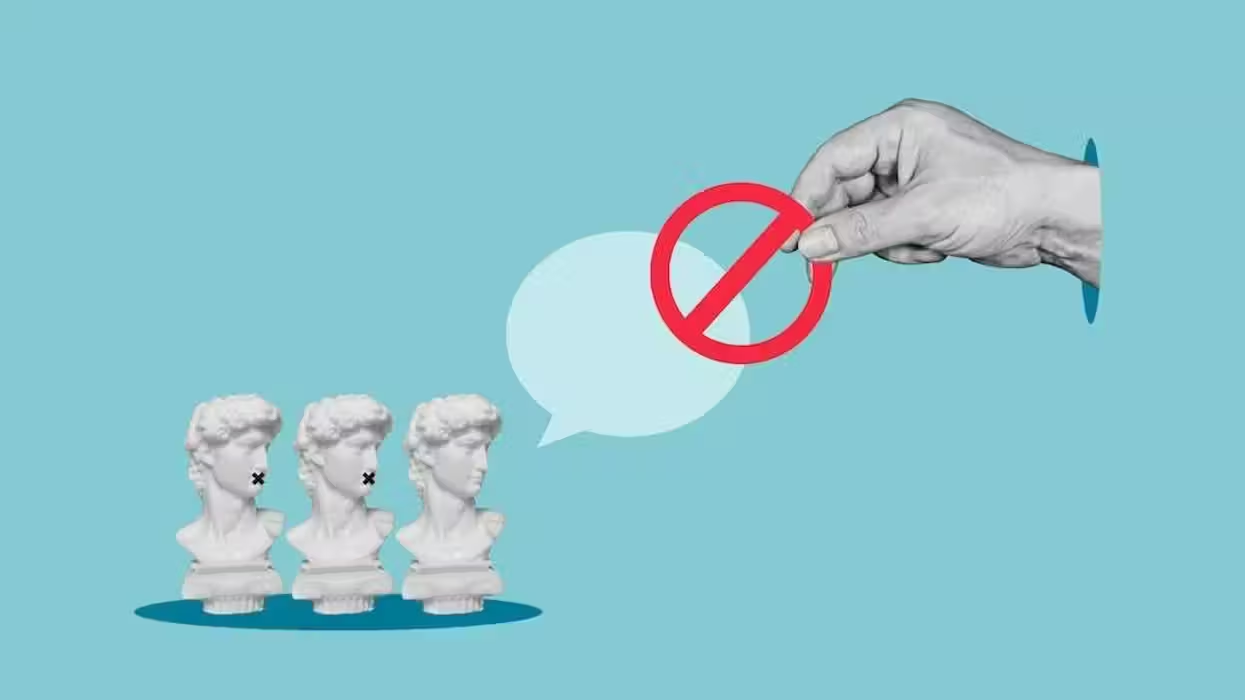
© 2026 Blaze Media LLC. All rights reserved.
"The free market, by enabling people to compete openly, is the most effective device that has ever been invented for making people pay for their prejudices."
Last week, President Obama made his his National Equal Pay Day proclamation, repeating the misleading statistic that "women still make only 77 cents to every man's dollar."
As Major Garrett perceptively noted, the manner in which the President carried out the equal pay push reflected former advisor David Plouffe's ingenious strategy of "stray voltage":
"The theory goes like this: Controversy sparks attention, attention provokes conversation, and conversation embeds previously unknown or marginalized ideas in the public consciousness. This happens, Plouffe theorizes, even when—and sometimes especially when—the White House appears defensive, besieged, or off-guard."
While this post itself is perhaps reflective of the effectiveness of Plouffe's strategy, nevertheless we thought it worth pointing out a video uncovered by George Mason University Professor Don Boudreaux over at Cafe Hayek. The video, which comes from a series of lectures delivered by Milton Friedman from 1977-1978, which were intended to serve as content for the "Free to Choose" video series (which preceded his best-selling book of the same name), deals with the substance of "equal pay" for "equal work" legislation.
Here is the clip:
Below are a couple of Friedman's most compelling arguments:
- "Over and over we have to look at the actual consequences of policies, not the names of them. The immediate occasion that we're talking about now..."equal pay for equal work," is a claim for people supposedly for the feminist cause. Now I believe that's an anti-feminist slogan. It will hurt the feminists. It will not help them. Why? I believe that every individual man, woman, or child should have an opportunity to get a job if he wants to and can do it. But now, if there are some people who are prejudiced -- if Mr. Jones is a male chauvinist -- and he would prefer to have a man rather than a woman; or a Mr. Smith is a believer in feminine rights, and would prefer to have a woman rather than a man, it doesn't matter. But take the male chauvinist pig: If you have a law that he must pay the woman and the man the same, and if he can find some way around having to hire the woman, he gets away free. He doesn't have to pay for his prejudice. On the other hand, suppose he has the prejudice, but we let people compete. Then the woman at least has the weapon of offering to work for less. And he has to pay for his prejudice. The free market, by enabling people to compete openly, is the most effective device that has ever been invented for making people pay for their prejudices, and thus for making it costly for them to exercise it. And what you do when you impose the equal pay for equal work law, is that you make the expression of prejudice costless. And as a result you harm the people you intend to help."
- "I do not believe that it is desirable that we move in the direction of having a government bureaucrat decide whether A may hire B or not, whoever A and B are...and in consequence I think programs of this kind are both reducing our freedom and reducing equality. And they will...disadvantage...the very groups [which the policymakers and their supporters] intended to help."
Also of note, Friedman recommends W.H. Hutt's "The Economics of the Colour Bar," a book we have discussed before, in which Hutt argues that apartheid in South Africa began with a trade union push for "equal pay" for "equal work" legislation.
Want to leave a tip?
We answer to you. Help keep our content free of advertisers and big tech censorship by leaving a tip today.
Want to join the conversation?
Already a subscriber?
Ben Weingarten is a writer, commentator, and editor at large at RealClearInvestigations. He is a senior contributor at the Federalist and writes columns for Newsweek and the Epoch Times.
Ben Weingarten
Ben Weingarten is a writer, commentator, and editor at large at RealClearInvestigations. He is a senior contributor at the Federalist and writes columns for Newsweek and the Epoch Times.
more stories
Sign up for the Blaze newsletter
By signing up, you agree to our Privacy Policy and Terms of Use, and agree to receive content that may sometimes include advertisements. You may opt out at any time.
Related Content
© 2026 Blaze Media LLC. All rights reserved.
Get the stories that matter most delivered directly to your inbox.
By signing up, you agree to our Privacy Policy and Terms of Use, and agree to receive content that may sometimes include advertisements. You may opt out at any time.






